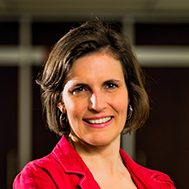

By Élise Lepage and Carlo Lavoie
When we take the time to consider the situations facing Francophone minority communities across Canada, we can’t help but remark on the challenges they are facing. Despite the policies of official bilingualism adopted by the Government of Canada and the Government of New Brunswick, current trends are concerning. In the short term, we believe that the federal policy faces the greatest risk. If the government truly believes that the vitality of Francophone communities depends on the development and protection of their institutions, as it states, then it must show leadership and become a real partner in the revitalization and financing of Francophone post-secondary institutions.
Universities and colleges play a crucial role, allowing individuals to complete their education and training within their own regions. At the same time, the research activities and partnerships they develop serve to energize local communities. In this sense, Francophone universities and colleges are fundamental not only to the transmission of language and culture, but to the economic and social dynamism of communities. Take for example the University of Moncton, which has had an immense and lasting impact on the Acadian community by offering Francophone students in New Brunswick the opportunity to complete their post-secondary studies in French in their province since 1963. Serving the entire Acadian community in the Maritimes and beyond, this institution has empowered, and continues to empower, Acadians in their ability to get involved and take leadership in Francophone, bilingual and even Anglophone institutions.
Northern Ontario has also benefited from the presence of Laurentian University, which became a bilingual university federation in 1960. The university has contributed to maintaining and developing vibrant Francophone communities in the northern part of the province, becoming the source of a cultural, economic and political revival. This institution has been at the heart of a renewed Franco-Ontarian identity and represents one of the most important actors involved in French-language research and teaching in Ontario and for the rest of Canada’s Francophone minorities. That was, until a disastrous financial debacle hit the university in the spring of 2021, overwhelmingly impacting Francophone programs and activities1. Franco-Ontarians felt justifiably betrayed. No longer recognizing themselves in this crucial institution, they’ve even begun referring to it exclusively by its English name.
Support for these institutions has been eroding for years, and many post-secondary institutions have been left in a near-permanent state of crisis. Among so many others, our colleagues on the Saint-Jean Campus at the University of Alberta have been forced to fight tirelessly to maintain their programs. Professors at the Université Saint-Anne, in Nova Scotia, experienced particularly acrimonious negotiations this year. Francophone post-secondary institutions across the country have had to redouble their efforts to guarantee they can maintain their operations. To this we can add the disproportionate number of Francophone international students who have their applications for admission refused by the federal government, despite their crucial importance to the survival and growth not only of these institutions but the communities that welcome them.
The progressive weakening of research and teaching activities in French has other consequences as well. How many French-language academic and research programs, French-immersion programs and programs deemed to have low attendance remain under constant threat in Anglophone and bilingual institutions? While large federal granting agencies accept requests in both French and English, the reality is that many of our Francophone colleagues are advised internally to write their applications in English. Those who instead choose to exercise their right to apply in French are deprived of crucial advising services from research offices and left doubting whether their applications truly receive a just, informed and equitable consideration from the different evaluation committees.
These institutions and bilingual academic programs play a central role in maintaining Canadian bilingualism and developing vibrant communities from sea to sea. For nearly a century, ACFAS2 has worked to highlight the innovation and creativity of Francophone researchers. French-language and bilingual academic programs, as well as research activities in French, must be funded to ensure they can fulfill their mandates and continue playing their role as incubators for excellence and innovation in their communities. This is just as true for Canadian bilingualism as both a linguistic reality and a public policy.
It is up to us to advocate for these institutions and remind the federal government that its support for Francophones in Canada is pivotal.